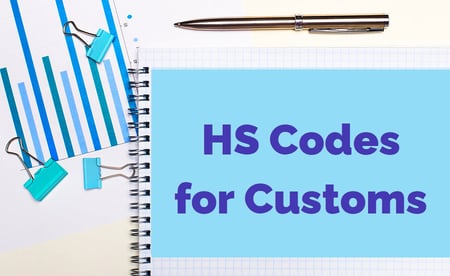Every 5 years, the World Customs Organization updates the Harmonized Commodity Description and Coding System (HS) that classifies the products you buy and sell and, in part, determines the duty you pay. WCO just finished is latest update, which went into effect in the US on January 27. It’s wise to revisit the HS codes for Customs you have been using in light of these recent changes.
Here are some resources that might help:
- World Customs Organization HS Nomenclature 2022
- US Census Bureau codes for reporting export shipments
- US International Trade Commission Harmonized Tariff Schedule of the United States for use in Classification of Imported Merchandise for Rate of Duty and Statistical Purposes
 One of the WCO’s goals in updating tariff codes is greater code uniformity across countries. The latest change gets us closer, but there is still not a dead-on code match, country to country – even for the exact same products. That creates confusion and angst among global shippers needing to classify their products for import or export.
One of the WCO’s goals in updating tariff codes is greater code uniformity across countries. The latest change gets us closer, but there is still not a dead-on code match, country to country – even for the exact same products. That creates confusion and angst among global shippers needing to classify their products for import or export.
Why the angst?
Because cargo that is improperly classified on shipping documents can delay your shipments and create significant time and costs to address. For example, a US importer of furniture products from Poland recently had its entry rejected by US Customs because the code provided by the supplier in Poland did not exist within the US Tariff Schedule.
The HS assigns specific 6-digit codes for varying classifications and commodities. But countries are allowed to add longer codes to the first six digits for further classification, and that’s where the confusion typically occurs. The US uses a 10-digit code.
For something you think would be black and white – like the classification number for a specific type of product – there are grey areas. That’s why you need an expert customs broker to research and advise on the exact HS code for customs that is right for your product.
Here are a couple of examples where choosing the right HS Code for Customs was a bit murky:
- A company in Europe shipped its product to a US customer under DDP (delivered duty paid) terms, so was responsible for duty payments in the US. The product was gloves with a battery pack designed to reduce fatigue for industrial workers. It’s somewhat of a unique product that doesn’t fall strictly under the glove category. If products had been declared separately (gloves, batteries, wires) the exporter would have paid a hefty tariff. But the company’s customs broker did some research and identified an HS code that categorized the product as a tool for industrial workers.
- An importer of antiques was bringing in chairs, tables, dressers, vases, home décor and other items from Europe. His assumption was that it could all be imported under an “antiques” code, but that’s not the way it works. First, Customs wants to know how old the furniture is. If it’s not 100 years old, the agency wants to know the type of wood it’s made of (teak is a different code than walnut, etc), whether it’s EPA-regulated (there are formaldehyde emission standards for wood products) or whether the FDA needs to get involved (an antique carafe could be considered an item that people drink from, even if it’s just a decorative item). In the end, the shipment required 21 different HS codes. That generated a stiff customs broker bill because of all the research required, but the cargo moved through Customs quickly and without issue.
Customs brokers work a little like lawyers when determining HS codes. Lawyers may cite previous judgements for similar cases as precedents. Likewise, customs brokers examine past rulings where Customs has declared what HS code applied in certain situations. Brokers have access to these historical rulings and can use these tools to advise you properly.
US Customs relies on brokers like the IRS relies on accountants. Just like the IRS can’t audit every tax return, US Customs can’t inspect every cargo shipment. So they rely on customs brokers to know the HS Codes for Customs and to, as Spike Lee might say, do the right thing.
There is such a thing as “tariff engineering,” where companies whose products could be classified under multiple HS codes seek the code that is compliant with Customs but generates the lower duty payment. In such cases, you want the expert advice of a customs broker to provide clear evidence for the classification if there is ever a question.
Seek out an expert when choosing the right HS code for Customs
The reference documents for HS codes are all free and readily available. But they don’t always provide the exact right answer. Sometimes it’s wise to work with a freight forwarder that provides customs brokerage – through a trusted affiliate partner – as part of a single, integrated global transportation service. In these cases, I.C.E. Transport can help. Let’s start a discussion.




